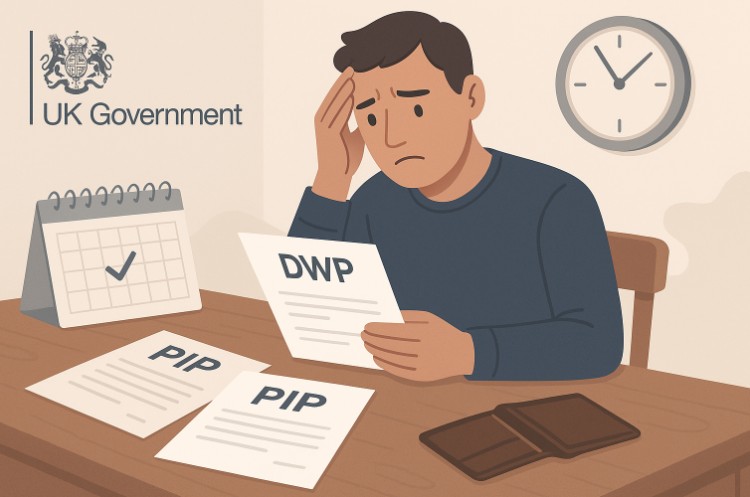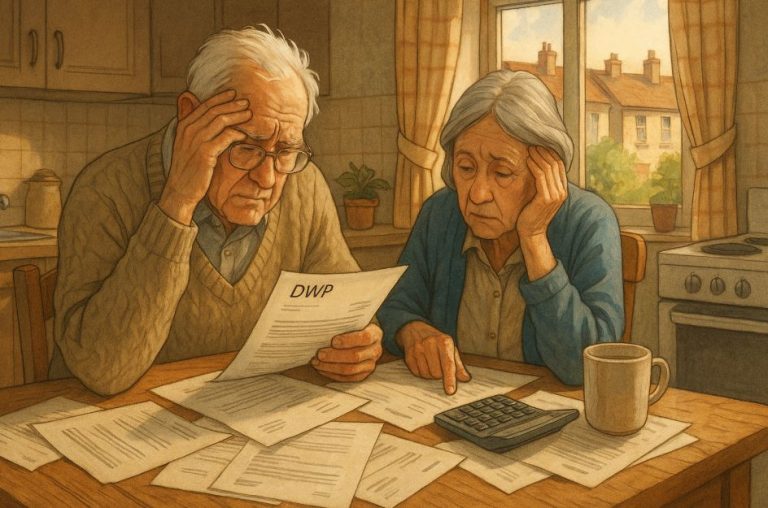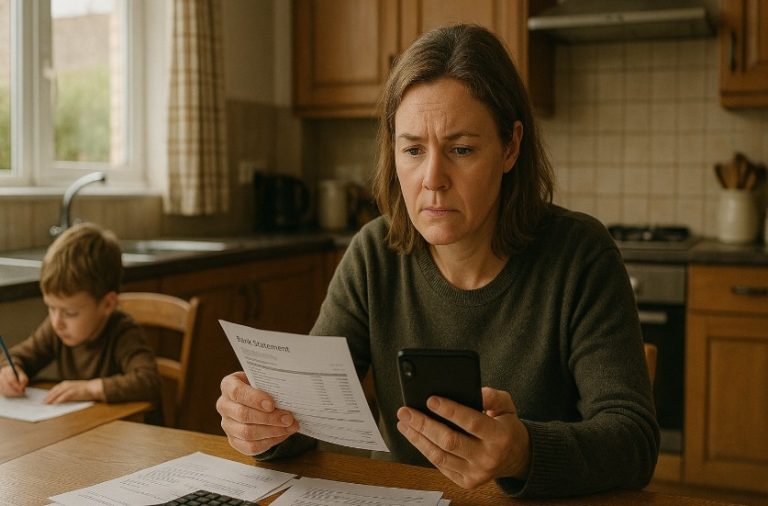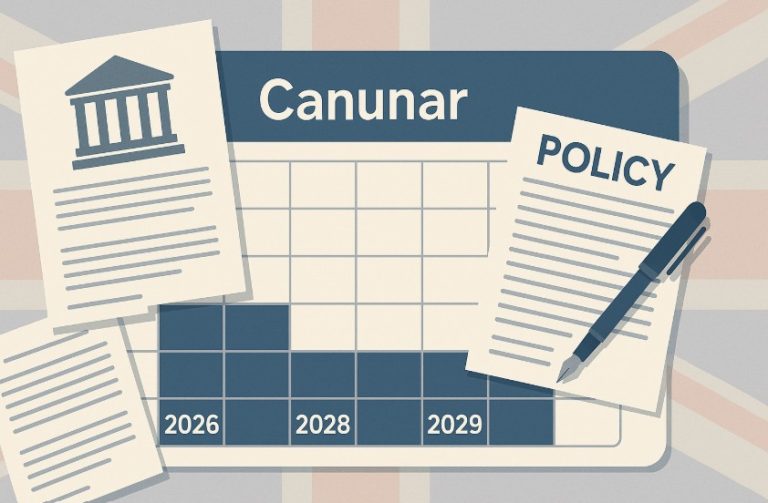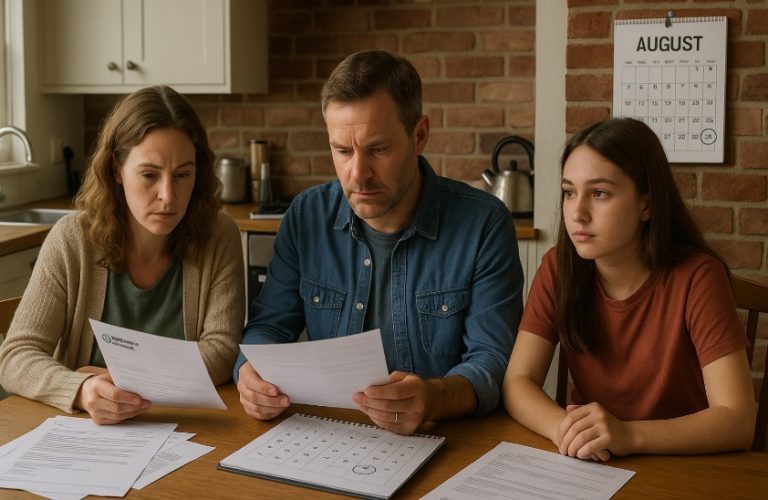Understanding how housing costs are covered under Universal Credit is essential for anyone renting or owning a home in the UK. Whether you’re in council housing, renting privately, or living in supported accommodation, the amount you receive for your housing will vary based on your circumstances.
This guide explains whether you can get full housing benefit through Universal Credit and what to do if your rent isn’t fully covered.
What Is The Housing Element In Universal Credit?

The housing element of Universal Credit is the portion intended to help claimants with housing-related costs. This can include rent payments to private landlords, housing associations, or councils, as well as eligible service charges.
Eligibility for the housing element depends on several criteria:
- You must have a rental liability or housing costs to pay
- The accommodation must be your main residence
- You must meet income and capital thresholds
- You need to provide a tenancy agreement or mortgage documents
This element is assessed every month during your Universal Credit assessment period. If your circumstances change, such as a rent increase or household change, the amount you receive may be adjusted accordingly.
The housing element can also support homeowners with interest payments through a separate scheme.
Does Universal Credit Cover Full Rent In Social Housing?
In most cases, Universal Credit does cover the full rent for claimants in social housing. Social housing refers to properties owned by local councils or housing associations. These types of tenancies are considered more affordable and regulated compared to private rentals.
What is typically covered:
- Full rent amount set by the housing provider
- Eligible service charges associated with the property
What is not usually covered:
- Charges for furniture or white goods
- TV licence or private internet and phone services
- Personal maintenance costs
If the rent amount is deemed reasonable and the tenant is not under-occupying the property, the full amount is usually paid through the housing element. However, tenants affected by the bedroom tax or benefit cap may receive a reduced amount.
Can Universal Credit Fully Cover Private Rental Costs?
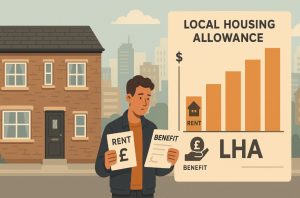
Universal Credit often does not cover the full amount of private rent. The amount provided for housing costs in a private tenancy is based on the Local Housing Allowance (LHA) rate.
This rate is determined by:
- The area in which the tenant lives
- The number of bedrooms the household requires
Even if your actual rent is higher, Universal Credit will only pay up to the LHA rate applicable to your household.
LHA Comparison Example
| Household Type | Area Example | LHA Monthly Rate | Average Rent | Shortfall |
| Single Adult, 1 Bedroom | Birmingham | £420 | £550 | £130 |
| Couple With 2 Children, 3 Beds | London Borough (Croydon) | £1,100 | £1,400 | £300 |
Claimants are responsible for covering any shortfall between their LHA and actual rent from their standard Universal Credit allowance or other income.
What Happens If Universal Credit Doesn’t Cover Your Rent?
When the housing element does not fully cover your rent, you have to make up the difference. Failing to pay the shortfall may result in rent arrears or potential eviction.
Support options include:
- Using a portion of your standard Universal Credit payment
- Applying for a Discretionary Housing Payment (DHP) from your local council
- Negotiating with your landlord for temporary arrangements
DHP is a short-term solution designed to help tenants in financial hardship. Councils assess each application individually and may request supporting documents to evaluate your financial situation.
Who Cannot Get Housing Cost Support Under Universal Credit?
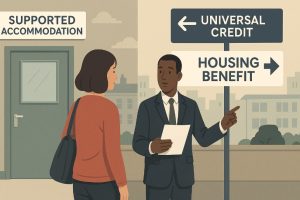
Universal Credit is designed to simplify the benefits system, but there are specific circumstances where individuals cannot receive housing cost support under this scheme. In such cases, Housing Benefit remains the applicable support system.
Supported Or Sheltered Housing With Care
If you live in supported or sheltered accommodation and receive care, support or supervision as part of your housing, you cannot claim housing costs through Universal Credit. This applies even if the care is provided by a third party or external contractor.
Instead, you must apply for Housing Benefit through your local council, which still administers housing support for these specific housing types.
Temporary Accommodation For Homelessness
People living in temporary accommodation arranged by the local authority due to homelessness are not eligible for the housing element in Universal Credit. These arrangements are usually short-term and meant to provide emergency shelter.
You must claim Housing Benefit separately in these cases. Universal Credit will still provide support for living costs, but not the rent for temporary accommodation.
Domestic Abuse Refuge Housing
If you are staying in a refuge or emergency housing for survivors of domestic abuse, you also fall outside the scope of Universal Credit’s housing support.
These specialist accommodations often come with additional protections and tailored support services, which require separate funding.
Housing Benefit is again the route to secure assistance with rent in this situation.
Dual Claims And Exceptions
While most housing costs are covered by Universal Credit, these exceptions allow for dual claims:
- You receive Universal Credit for daily living costs
- You claim Housing Benefit solely for housing support
This dual system ensures that individuals in vulnerable housing conditions do not lose access to essential financial support.
What Help Is Available For Homeowners On Universal Credit?

Homeowners do not receive direct rent support through Universal Credit, but there are provisions in place to support mortgage interest payments and other housing-related costs. The main form of support is called Support for Mortgage Interest (SMI).
Support For Mortgage Interest (SMI)
SMI is a government loan offered to homeowners receiving Universal Credit. It is designed to cover the interest portion of your mortgage payments, not the capital repayment.
Key points about SMI:
- You must be receiving Universal Credit for at least three consecutive months
- The property must be your main residence
- The interest is calculated using a standard interest rate, regardless of your lender’s actual rate
The payment is made directly to your mortgage lender, and the total amount is recovered when the property is sold or ownership changes.
Other Housing-Related Support
While SMI helps with mortgage interest, Universal Credit claimants may need help with additional housing expenses.
These can include:
- Council Tax Reduction: Available through your local authority to reduce council tax liability
- Discretionary Support: Homeowners may apply for discretionary payments in case of severe hardship, although these are rarer for owner-occupiers
- Alternative Payment Arrangements: If budgeting is difficult, homeowners can request that essential utility bills be paid directly from their Universal Credit payment
Managing Housing Costs As A Homeowner
For those struggling with regular housing-related bills, it’s essential to:
- Keep mortgage lenders informed about any difficulties
- Apply for Council Tax Reduction promptly
- Seek advice from local authorities or housing charities on available support
Although homeowners are treated differently from renters within Universal Credit, the system provides a basic safety net to prevent housing insecurity.
How Does The Benefit Cap Affect Housing Payments?
The benefit cap places a limit on the total amount of benefits a household can receive. This cap includes the housing element, which means that if the total Universal Credit award exceeds the cap, the housing portion may be reduced.
The benefit cap applies unless exemptions apply, such as:
- You or a member of your household receives Disability Living Allowance (DLA), Personal Independence Payment (PIP), or Carer’s Allowance
- You are working and earn above the earnings threshold
Table: Current Benefit Cap Levels (Outside London)
| Household Type | Weekly Cap | Monthly Equivalent |
| Single (No Children) | £257.69 | £1,116.67 |
| Couple or Single Parent | £384.62 | £1,666.67 |
If your benefits exceed the cap, the excess is deducted from your Universal Credit award, usually from the housing element first. This can result in increased financial pressure, especially in areas with higher rental costs.
What Should You Do If You Become Homeless While On Universal Credit?

If you become homeless while receiving Universal Credit, it is critical to update your online journal immediately. This ensures the Department for Work and Pensions (DWP) and your work coach are aware of your situation.
Your work coach may apply an easement, which temporarily suspends your work-related responsibilities while you focus on securing accommodation.
Other steps include:
- Contacting your local council’s homelessness team
- Seeking advice from charities or housing organisations
- Using shelter or hostel accommodation if available
Even while homeless, you can continue receiving Universal Credit. However, the housing element will only apply if you are still liable for rent or other qualifying housing costs.
How Is Housing Support Different In Scotland?
In Scotland, claimants have more flexibility with how they receive the housing element of Universal Credit.
This includes:
- Choosing to be paid once or twice monthly
- Requesting that the housing element be paid directly to the landlord
This system is designed to prevent rent arrears and promote financial stability. The Scottish Government introduced these variations to make budgeting easier for tenants.
When opting for twice-monthly payments, the payment cycle can initially seem delayed. After the first full monthly payment, the second month is split into two instalments spaced 15 days apart.
If you are already receiving Universal Credit and have not been informed of this option, you can request it through your work coach or online journal.
How Is The Housing Element Calculated?
The housing element is calculated during your monthly Universal Credit assessment period.
The amount depends on:
- Your household composition
- Your rental or mortgage liability
- Local Housing Allowance rates (for private renters)
- Presence of non-dependants or lodgers
Changes you must report include:
- Moving home
- Changes in your rent amount
- People joining or leaving your household
Failure to report these changes could lead to incorrect payments or even overpayments, which must be repaid.
What Other Benefits Can Help With Housing Costs?

In addition to the housing element of Universal Credit, there are other forms of financial assistance available:
- Council Tax Reduction: Apply through your local authority for a discount on your council tax bill
- Budgeting Advance: An interest-free loan from Universal Credit for emergency expenses, including housing-related costs
- Discretionary Housing Payments: Additional help with rent, available through local councils for those facing hardship
These benefits and support schemes can help bridge the financial gap when Universal Credit does not cover all housing-related expenses.
Conclusion
In summary, whether you receive full housing benefit through Universal Credit depends on your housing type, rent amount, and personal circumstances.
While social housing tenants often get full support, private renters may face shortfalls due to Local Housing Allowance limits.
Homeowners and those in specialist housing may need to explore alternative options like SMI or Housing Benefit.
Understanding eligibility and available support is key to managing housing costs effectively under Universal Credit and avoiding financial difficulties.
FAQs About Housing Benefit and Universal Credit
Can Universal Credit be paid directly to my landlord?
Yes, especially in Scotland or in cases where a managed payment arrangement is agreed due to rent arrears or budgeting difficulties.
What is Local Housing Allowance and how does it affect me?
LHA determines the maximum housing element for private renters, based on your area’s average rent and your household size.
Will my Universal Credit go down if I start working?
Possibly. If your earnings increase, your overall Universal Credit award, including the housing element, may reduce.
Can I get help with rent while waiting for my first Universal Credit payment?
Yes, you can request a Universal Credit advance, which must be repaid over time.
How do I apply for a Discretionary Housing Payment?
Contact your local council directly. You’ll need to explain your financial situation and provide evidence of your rent shortfall.
What happens if I have rent arrears?
You may face eviction. Speak to your landlord and work coach. Universal Credit can set up direct rent payments to avoid eviction.
Is the benefit cap applied automatically?
Yes, it is calculated automatically unless you’re exempt. Your housing element may be reduced if the cap applies.


